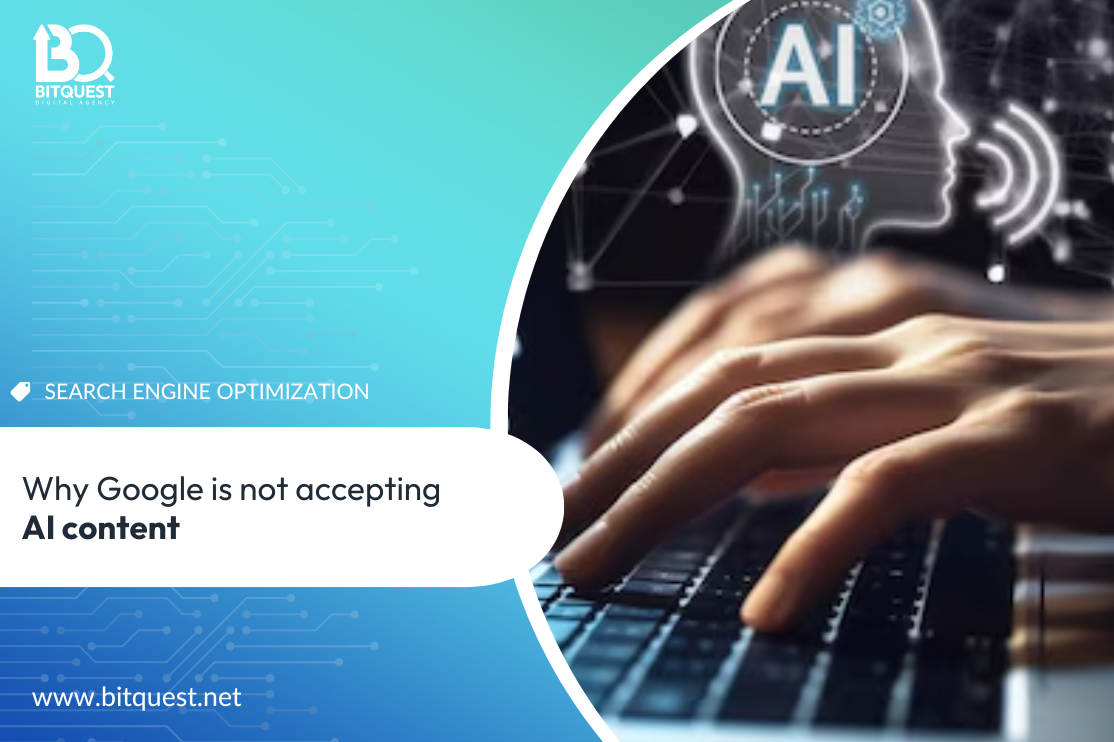6 June 2024
Artificial Intelligence or AI content creation is basically the use of AI technology to optimize and produce content. Some examples of AI content creation involve editing, writing copy, generating ideas, and evaluating the engagement of audiences. While the use of AI does promote efficiency and innovativeness, Google has expressed its stance on the use of AI content. In this blog, we will look at the major reasons the company is cautious in embracing AI content.
Opportunities and Challenges due to Rise of AI content
Due to recent advancements in natural language processing, machine language, and other major technologies, AI-generated content has advanced rapidly. Nowadays, such content has found its way across different industries. AI technology has been evolving since 1943 and has seen many notable changes over the years. AI generated is being used by individuals and businesses due to its certain advantages over human-generated content.
Speed, scale of content, consistency, cost, and personalization are some of the major pros of AI-generated content. It revolutionized the way content was being produced and consumed. However, such accelerated content production was not without challenges. The quality of the generated content was one of the main issues of AI-generated content. Additionally, there was a huge potential for discrimination and bias within the generated content along with authenticity which is important for search engines.
Content quality guidelines of Google
Recently, Google launched one of its major core algorithm updates which targeted low-quality, especially AI-generated content within search results. The company has a history of prioritizing user experience and quality of content. For example, Panda (2011) and Penguin (2012) are some of the initial examples that dealt with manipulative link practices and poor-quality of content.
Nowadays, the surge in content produced by AI has cluttered the search engine which results in spammy content. Therefore, the recent algorithm update aimed at getting rid of content that does not meet the quality standards sought by the company.
The main reasons Google is not accepting AI content
1. Low quality content
With the rapid rise of AI-generated content, rubbish AI content emerged. This trend created challenges for users looking for relevant information as authentic and high quality content were being buried by spam contents.
2. Lack of originality and authenticity
While the generated AI content may seem original, it is greatly limited by the training data and algorithms used to produce it. This cannot compare with the creativity of the human brain that drives imagination, emotions, and experiences.
3. Occasional misinformation
There is also occasional misinformation seen from AI-generated content. AI is freely available to everyone nowadays, which makes it very easy to generate fake content and information in large quantities. With such a large plethora of information available to anyone on the internet, it becomes quite difficult to fact check each information.
To conclude, the company has shown its stance by not accepting AI-generated content to be ranked within search engines. While content can be mass-produced via AI applications, it cannot replicate the authenticity and originality that a human might bring to the content.

